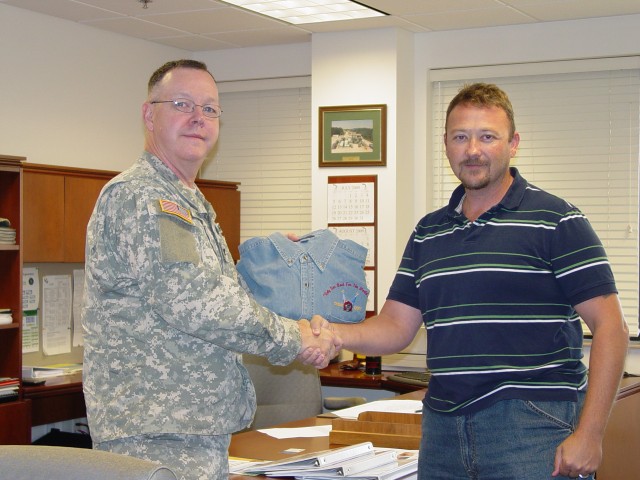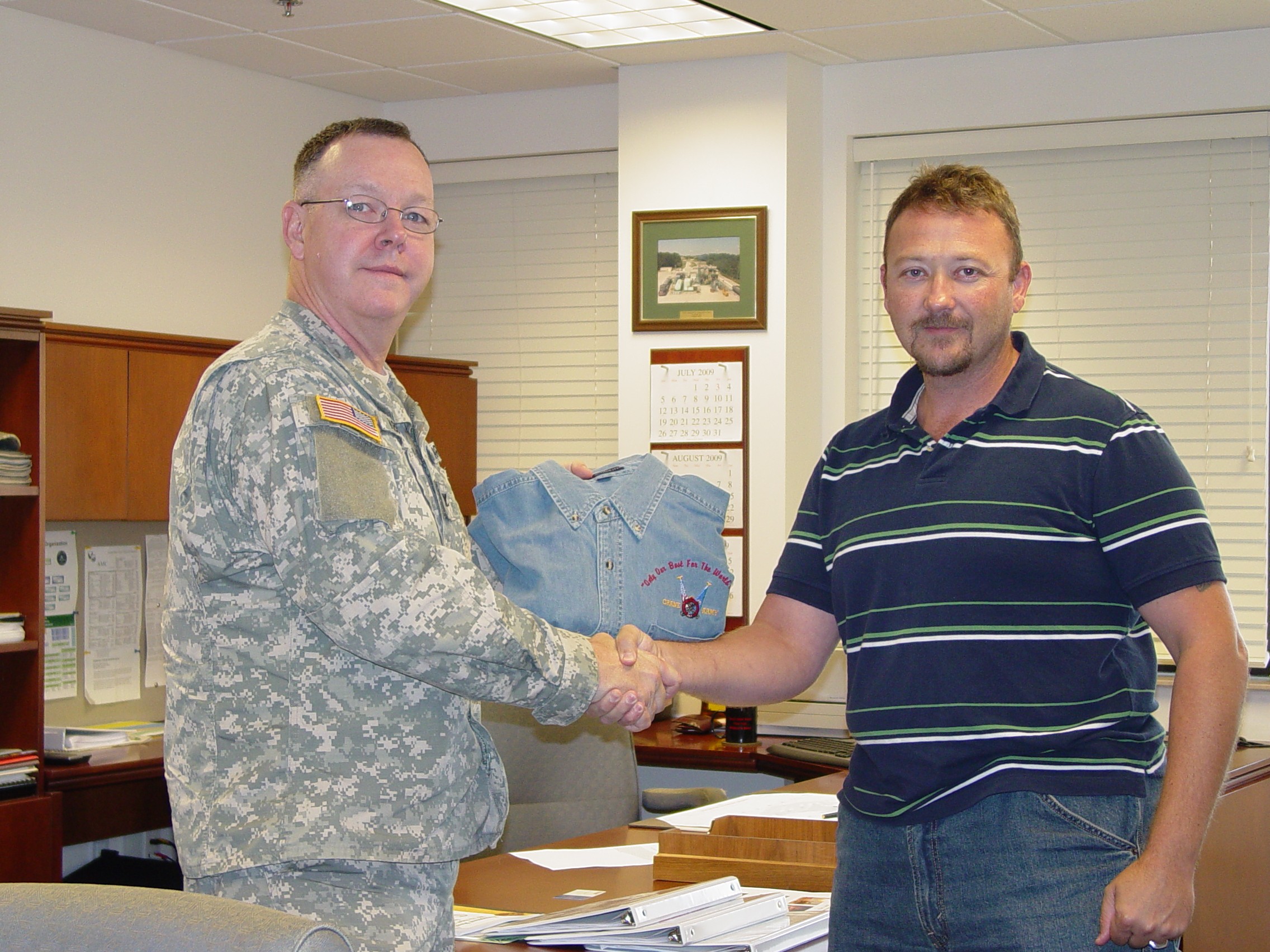CRANE, Ind. - Knowing what an ammunition activity or depot does and actually seeing it in action can make all the difference in the world when making policies that will impact those locations. Thanks to the Ammunition Management Career Program's Grassroots Developmental Assignment, Army Materiel Command Logistics Management Specialist Michel Hamann now has more of that important knowledge.
Hamann spent a couple of weeks at Crane Army Ammunition Activity seeing at the ground level what the workers do, giving him a better knowledge of what the activity's needs are in order to accomplish their mission.
"The purpose of the grassroots program is to bring some of the inexperienced workforce and have them get exposed to hands-on, down-in-the-weeds ammunition activity and I think Crane is a perfect place to do that. I guess I am atypical. I am not a DAC intern or somebody who just came in fresh faced. I have been around quite a bit," he explained.
"Originally when I called Crane Army's Manufacturing and Engineering Deputy Director Paul Allswede, I think he thought I needed this great, long, in-depth exposure. When I got here we discussed it a little bit more and it seemed that for my benefit that it would be better for me to see a few things in-depth but more on a broader scale of what they do here."
Hamann said he had just switched to Career Program 33 a few months ago, previously working in the CP 17 field. He also is an ordnance officer in the National Guard. He said it had been suggested to him by someone at another depot that he should spend time at the depot level. His supervisor, AMC Deputy of Strategic Sustainment and Support (Ammunition and Chemical) John Stults, was supportive and suggested Crane because it is a tenant on the navy base and because of some of Crane Army's projects.
Spending time with various ME functions like Pyrotechnics, Flares and Demilitarization, Hamann said he developed a better understanding of the time, resources and technical experience and knowledge required for Crane's projects.
"After a day and a half at Pyro, I had a good idea of what they do with the illumination candles and flares. I was able to see hands-on how the process works and got a good understanding of resources, knowledge and time that goes into making one round. It takes a lot of work and resources," Hamann said. "And then I moved over to look at the first article test on the MK-132, a Marine flare. It was interesting some of the engineering work that goes into that. Looking at these rounds that failed to do what they were supposed to do and the reverse engineering and trouble shooting that went into figuring that out. That from an engineer's aspect was awesome. It made me want to do more of that because I am a very logical person."
Hamann said his time at Crane also provided him a chance to see future business opportunities, but only if the right steps are taken now. He said, "I think opportunities for Demil in the future are really where we are going to be lacking industrial-base wise. If we can get the right funding and commitment to actually start doing a lot of the demil, there are opportunities there."
"Being able to recover those resources and getting a fair, equitable market value - that in itself is of super benefit to us. If we can capitalize on that and do that everywhere we are doing demil, the money we can save can self-fund demil projects. That's going to be huge," Hamann said.
For Crane Army, the benefit of Hamann's time is another chance for the activity to educate the people who decide and manage policies at AMC.
Allswede said, "Mr. Hamann's participation was a wonderful opportunity to have an individual from AMC's Office of the Deputy G3, Strategic Sustainment and Support, experience ammunition manufacturing and logistics operations hands-on. I couldn't think of a more value-added way to engraining our capabilities into someone's memory than to have them participate in a grassroots developmental assignment. The experience was enjoyable from this end as well, working with Mike throughout his rotation provided valuable insight into AMC."
CAAA was established in Oct. 1977 and is a tenant of the Navy Region Midwest, Naval Support Activity Crane. The Army activity maintains ordnance professionals and infrastructure to receive, store, ship, produce, renovate and demilitarize conventional ammunition, missiles and related components.


Social Sharing